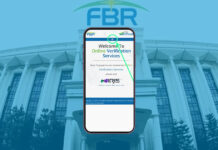We need to discuss the job market, because let’s be honest, it’s somewhat flawed. Every entry-level job seems to require two years of experience. Meanwhile, fresh graduates, career-switchers, and self-taught go-getters are stuck playing a frustrating game of “chicken and egg.” Well, here is the cheat code: you can get a job with no experience. It’s just about playing the game differently and smartly. Because truthfully? The system might be rigged, but it’s not impenetrable.
Getting a Job With No Experience: Tips For Beginners
Luckily, it’s not as hopeless as it seems. Many people break into industries every day without years of experience under their belts. The trick? Knowing how to position yourself, hustle smartly, and stand out from the crowd.
1. Let’s Redefine “Experience,”- Many People Have it Twisted
Here’s what most people get wrong: they assume “experience” only counts if it’s in a formal job with a title and paycheck. Ironically enough, it is very wrong.
Experience is anything that shows you can do the thing. This can include managing a student organisation’s social media accounts or running a small Etsy shop or dropshipping hustle. Even volunteering at college events, organising logistics and editing videos for a friend’s YouTube channel counts. Know how to code or build a basic portfolio site? Mention it.
Hot take: If you’ve done something valuable, learned from it, and can explain it well? It’s experience. Don’t let job descriptions gaslight you.
2. The Resume Game is Outdated: It’s Time to Play It (Strategically)
Resumes are, let’s face it, outdated. A person is expected to fit their whole life and potential into one piece of paper, hoping that some HR software won’t toss it before a human even sees it. So how do you stand out with no “official” job title?
Lead with value, not just job history. Use a strong summary statement at the top that sells your motivation, relevant skills and hunger to learn. Add transferable skills from school, hobbies, volunteering, or side hustles. Then, use bullet points to show actions and results. Numbers and outcomes make your work real.
The most important part here is how the framing of words is being done. If you volunteered at a school event then write, “Coordinated logistics for a school fundraising event with 200+ attendees, resulting in $5,000 raised.”
Tailor the resumes for every role. Yes, generic resumes don’t work anymore. Get it made by a professional resume maker if need be- someone who can optimise the resume for the applicant tracking system (ATS).
Unpopular opinion: You don’t need a perfect resume. You need a compelling story that makes someone say, “This person’s got potential.”
3. Projects Over Paper : Let Your Work Do the Talking
Anyone that really wants to cut through the noise should stop talking and start showing. Personal projects, freelance gigs or even just detailed case studies of things are more powerful than buzzwords.
Want to get into marketing? Run a mock social media campaign. Dream of becoming a UX designer? Redesign a popular app and write about the thought process. Interested in finance? Create a mini investment portfolio and track performance.
Truth bomb: A real-world project, even if it’s a self-initiated one is often more impressive than someone who interned and made coffee at a big firm.
4. Networking is More Important than Applying Blindly
People talk about this a lot but still ignore it for some reason. However, here’s the deal: networking is not about schmoozing at corporate mixers. Instead it’s about being visible, genuine and helpful. It is very important to connect with people on LinkedIn by commenting on their posts and starting conversations with them.
Ask them questions, not for a job but for insight. Keep aside the ego and start staying on radar. This isn’t about begging. It’s about building relationships. And yes, it takes time. But when a role opens up and your name rings a bell? That’s your shortcut past the resume pile.
Real talk: 70%+ of jobs aren’t even posted publicly. If you’re not networking, you’re missing the real job market.
5. Take Free Courses and Actually Finish Them
This one’s simple, but powerful. Platforms like Coursera, Google Career Certificates, Udemy and LinkedIn Learning are goldmines. Use these platforms to pick a relevant course and complete it properly. Then, add it to your resume and LinkedIn. Write a post or blog summarising what you learned.
Opinion: A $19 Udemy course won’t make a person an actual senior data analyst. But it shows initiative — and most hiring managers respect that more than a stale GPA.
6. Nail the Interview bTelling Your Story, Not Just Answering Questions
Let’s say, you finally land an interview, but then what? Now the job is to connect the dots for the interviewer. Utilise the lack of experience. It can be a superpower. Explain how the non-traditional path, personal projects and hunger to learn make you a great fit. Use the STAR method (Situation, Task, Action, Result) to tell stories that stick.
Advice: Own up to the lack of formal experience without apologising for it. Share brief personal anecdotes in cover letters and interviews that show how life lessons taught you to be dedicated, hardworking, and motivated; the very qualities employers are looking for in new employees. They want someone passionate but not desperate.
7. Stay in the Game: Losers Quit When it Gets Difficult
Let’s not sugarcoat it: getting that first job can be a big hassle. Getting ignored, ghosted and rejected is almost impossible to avoid. But here’s what separates those who get hired from those who don’t: resilience.
Every application, every interview, every networking call — it’s all compounding. Keep learning. Most importantly, keep showing up.
Hard truth: The job you’re dreaming about? Someone less talented but more persistent than you will get it. Why? Because they refused to quit.
8. Find Entry-Level Jobs Beyond “Easy Apply”
First things first — yes, they exist. But you have to dig a little deeper than just hitting “Easy Apply” on LinkedIn. Instead, start looking at startup job boards (like AngelList or Wellfound) and niche platforms (e.g., Dribbble for creatives, GitHub Jobs for developers). Even local business listings and community job boards do the work.
What to Look For:
- Titles like “Junior,” “Assistant,” “Trainee,” “Coordinator,” “Intern”
- Keywords like “entry-level,” “willing to train,” “no experience necessary”
- Apprenticeships, internships and freelance gigs
Pro tip: Don’t get hung up on titles. Some “Assistant” roles offer more real-world experience than big-name internships.
Read More: Top Careers in Pakistan: Choosing the Right Path for a Bright Future
The Types of Jobs that can be Done with No Experience
Many in-demand industries are open to beginners. Here are high-potential jobs that can be landed with no experience:
- Customer support
- Sales associate / SDR
- Data entry / admin Roles
- IT support
- Digital marketing assistant
- Social media manager
- Virtual assistant

You Don’t Need Experience, You Need Proof
The traditional job market worships experience, but experience isn’t the only path to competence. Proof of skill is the real currency.
And the good news? You can build proof without permission. This can be done through projects, networking, storytelling and good old-fashioned grit.
So no, the odds might not be stacked in your favour, but if you’re scrappy, smart, and strategic? You’ll beat the system and will understand how simple it is to get a job with no experience.
Good Luck!
Stay tuned to Brandsynario for latest news and updates







































